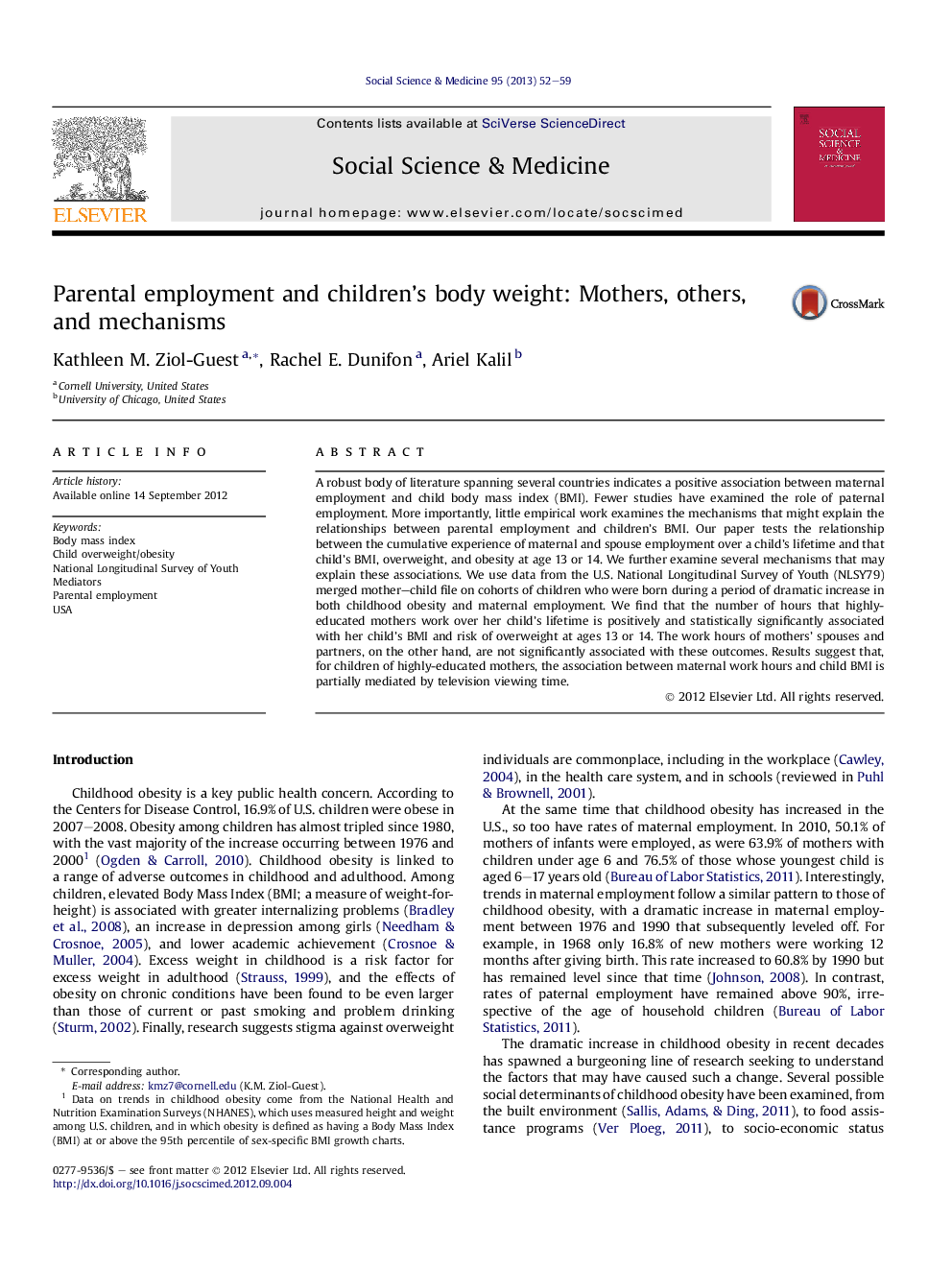| Article ID | Journal | Published Year | Pages | File Type |
|---|---|---|---|---|
| 952291 | Social Science & Medicine | 2013 | 8 Pages |
A robust body of literature spanning several countries indicates a positive association between maternal employment and child body mass index (BMI). Fewer studies have examined the role of paternal employment. More importantly, little empirical work examines the mechanisms that might explain the relationships between parental employment and children's BMI. Our paper tests the relationship between the cumulative experience of maternal and spouse employment over a child's lifetime and that child's BMI, overweight, and obesity at age 13 or 14. We further examine several mechanisms that may explain these associations. We use data from the U.S. National Longitudinal Survey of Youth (NLSY79) merged mother–child file on cohorts of children who were born during a period of dramatic increase in both childhood obesity and maternal employment. We find that the number of hours that highly-educated mothers work over her child's lifetime is positively and statistically significantly associated with her child's BMI and risk of overweight at ages 13 or 14. The work hours of mothers' spouses and partners, on the other hand, are not significantly associated with these outcomes. Results suggest that, for children of highly-educated mothers, the association between maternal work hours and child BMI is partially mediated by television viewing time.
► The number of maternal work hours during her child's life are associated with higher BMI and overweight risk at ages 13 or 14. ► These positive associations are more apparent among children of highly-educated mothers. ► For children of highly-educated mothers, the association between maternal work hours and child BMI is partially mediated by television viewing time.
